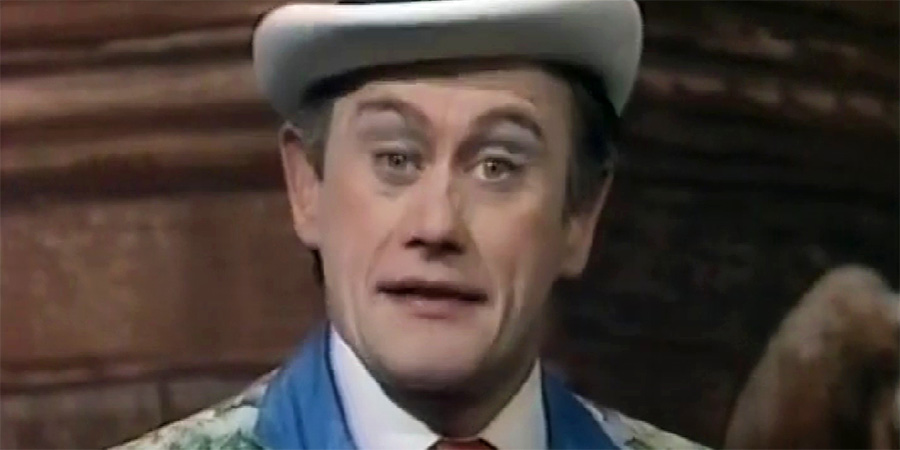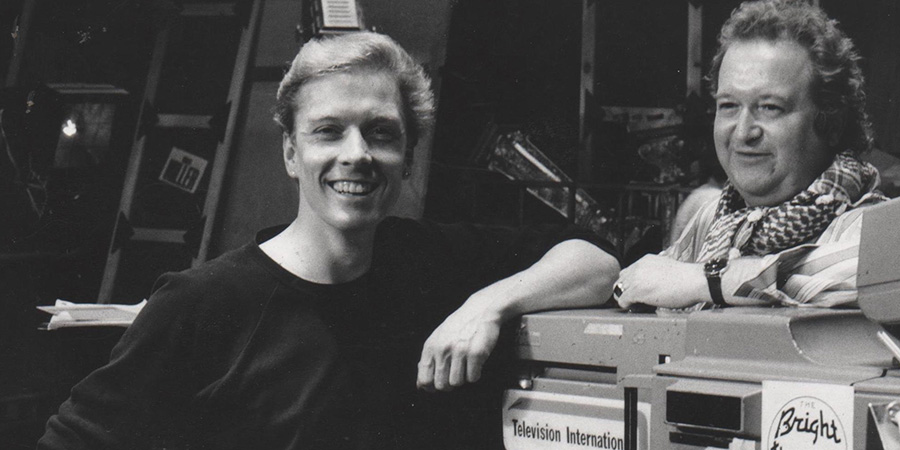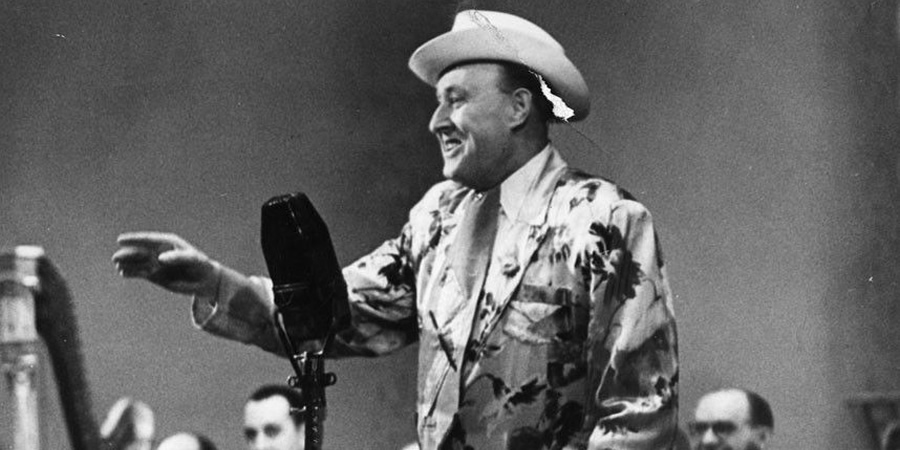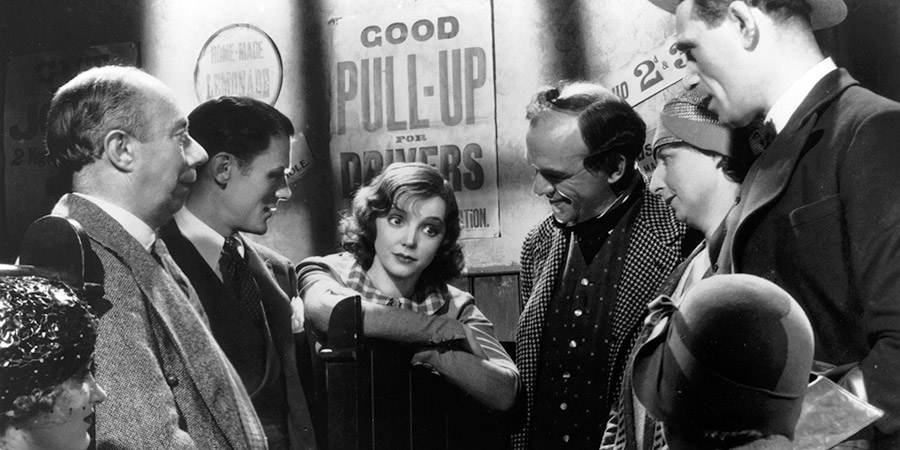Here's A Funny Thing: Channel 4

Whenever reference is made to early 1980s Channel 4 comedy, the myth is inevitably reinforced that the channel's output was solely comprised of anarchic and political humour.
The reality, however, is not nearly so straightforward. Channel 4's first commissioning editor for light entertainment, Cecil Korer, was a seasoned BBC producer who had vast experience in creating programmes that would appeal to a mass audience. Many of the shows he greenlit during Channel 4's first few years reflected that background, such as the very middle-of-the-road sitcom Father's Day, which might just as easily have been broadcast on BBC1 or ITV.
The very first light entertainment commission made for Channel 4 was a televised version of John Bardon's successful stage show about the legendary music hall comedian Max Miller: Here's A Funny Thing was devised by Bardon in conjunction with R.W. Shakespeare, a correspondent for The Times. First performed at the Liverpool Playhouse, Bardon toured the show across the UK, and later in a much longer run at the Lyric, Hammersmith.
The project was brought to Korer by veteran television comedy director Bryan Izzard, responsible for shows such as Please Sir! and On The Buses, and his business partner, Neil Anthony. The two men had met whilst working together at the former ITV regional company, Southern Television, and formed The Bright Thoughts Company, one of the very first independent companies to work for Channel 4.

Here's A Funny Thing was formally commissioned in the autumn of 1981, and recorded before an audience at the Fortune Theatre, London, on the 29th December 1981, nearly a year before the station launched. A new version of the script was commissioned from R.W. Shakespeare to fit the one-hour slot that the programme was to fill. John Bardon also recorded a piece to camera as himself, outside the Fortune, where he lauded Miller's genius as a performer.
The television production was different in many ways to the theatrical version. The Bright Thoughts style was never to simply point cameras at a stage in order to capture a live performance; it was always to also help interpret the production and its main character. There were a couple of key reasons for producing this type of show for Channel 4. Firstly, it showcased the kind of solo performance that, even by the early 1980s, was rarely seen on the BBC or ITV. Secondly, it made good economic sense. Hiring a theatre was cheaper than using a TV studio, with Outside Broadcast equipment less bulky and requiring fewer crew members to operate, making such a production much more cost-efficient for Channel 4, which required programming to be made on very tight budgets.

The script cleverly allowed Bardon to recreate Miller's famous act, with his extraordinary ability to connect directly with an audience with the liberal use of innuendo, and at the same time convey a great deal of biographical detail about the comedian. The televised version very effectively switched between Max's act as it would have been performed at the London Palladium, and a slightly seedy rehearsal room where Max regales his accompanist with the story of his life and career. Priscilla, the prim and easily shocked pianist, is ably played by Claire Kelly, the only other credited performer in the programme.
John Bardon was one of that small army of character actors, recognised by face rather than name, who appeared on screen in a myriad of supporting roles. His big break came towards the end of his life in EastEnders, when for fifteen years he played Jim Branning, husband of Dot Cotton. Before that he had spent many years as a jobbing actor, popping up in small roles on shows such as Are You Being Served?, Minder, and in support to Jim Davidson in his early-80s sitcom Up The Elephant And Round The Castle. Here's A Funny Thing was designed to give Bardon a role that could be taken on the road, and which would allow him free rein to put his acting talents on show. Sadly, like Max, John is no longer with us, but Here's A Funny Thing remains a great tribute to his work as an actor, not only because he was exceptional - with a naughty twinkle in the eye - but also because he had a passion for his subject.
"Us proper actors, we have a sneaking admiration for the people who work on the other side of this business," he commented in the programme's introduction.
In truth, Bardon had a deep love of variety theatre and music hall, and was meticulous in his research for Here's A Funny Thing. He was quoted as saying, that, as part of his preparation to play Miller, "I relied on the people who knew him to get the role right. Jimmy James, Tommy Cooper and Ken Dodd told me their favourite Miller gags". The genesis of Bardon's keen interest in Miller came when he played Milbrau in a 1974 stage production of J.B. Priestley's The Good Companions. Miller had played the same role in a 1933 film adaptation, and more or less stole the show in the process.

Bardon found the role richly rewarding as an actor. Interviewed by TV Times as part of a publicity drive for the Channel 4 screening he said: "Miller was an ordinary bloke. After months of doing his act, I know why he did it. The feeling of elation after making people laugh is tremendous. Often, after a show, I couldn't sleep."
The programme was broadcast on 20th November 1982 - part of Channel 4's first month on air - and was positively reviewed in the national press. Angela Wilkes, writing in The Sunday Times, noted that Bardon "captures much of the Cheeky Chappie's essential vulgarity and stagemanship". The Daily Mail commented that the television production was "a tour-de-force that brings Max Miller, the peacock-clad comic back to life".

It remains the only dramatised account of Max Miller's life to have been filmed, and is a remarkable portrait of a British comedy legend. It is also believed to be the very first production that was both commissioned and fully funded by Channel 4 to have been shot and "in the can", and as such is a notable piece of television history in itself.
However, it has sadly never been repeated, or released on home media. But forty years after that original broadcast, producer Neil Anthony now hopes to have Here's A Funny Thing remastered and made available on streaming platforms for new generations of viewers to enjoy
Help us publish more great content by becoming a BCG Supporter. You'll be backing our mission to champion, celebrate and promote British comedy in all its forms: past, present and future.
We understand times are tough, but if you believe in the power of laughter we'd be honoured to have you join us. Advertising doesn't cover our costs, so every single donation matters and is put to good use. Thank you.
Love comedy? Find out more